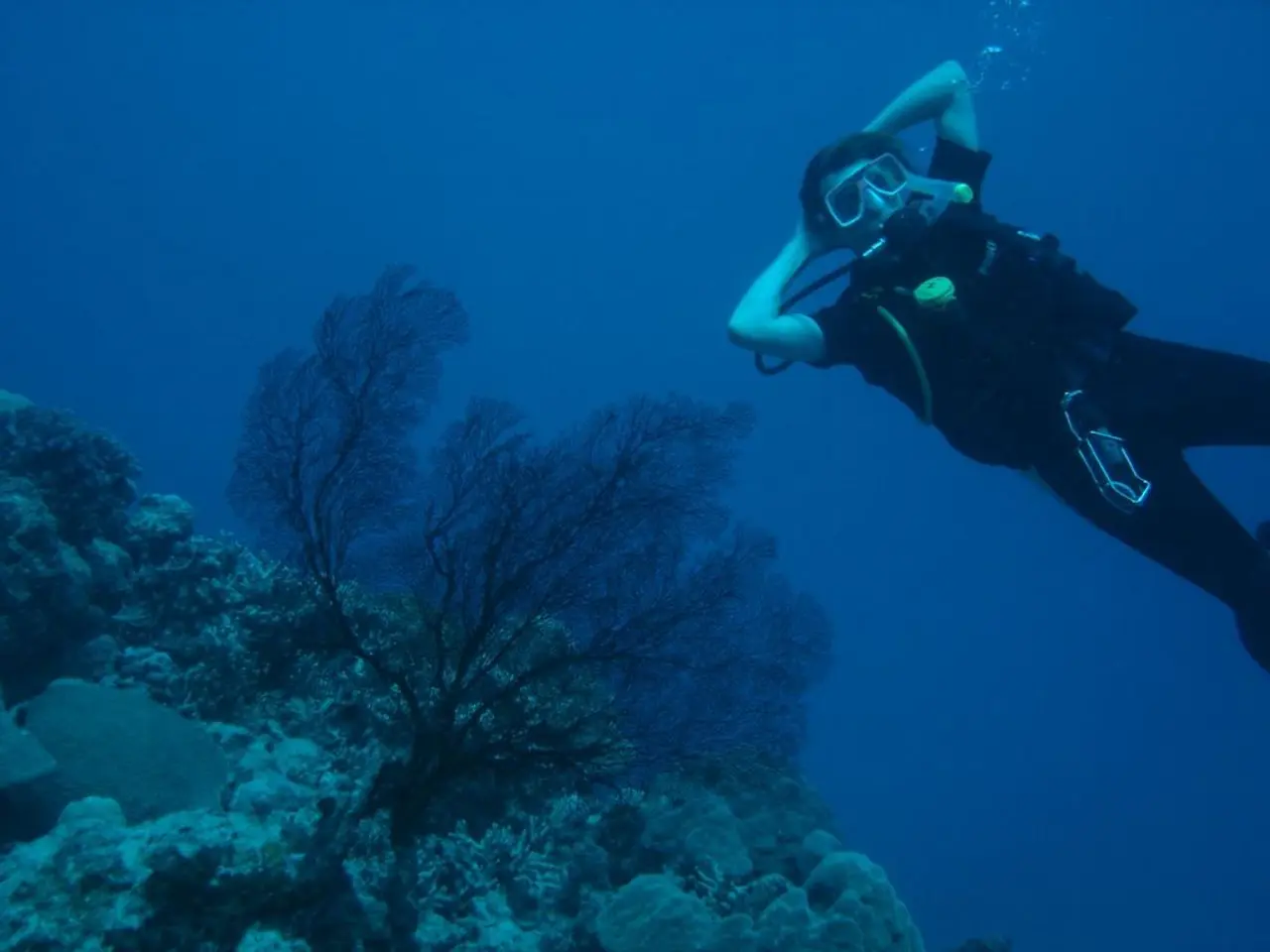Upcoming reclamation project near seagrass meadow brings privacy issues to the forefront regarding Singapore's environmental assessment processes
In Singapore, the Housing and Development Board (HDB) and the Urban Redevelopment Authority (URA) are moving forward with the Changi Bay reclamation project, which aims to create a new aviation park on the island's easternmost coast. The project will complement an upcoming industrial zone in Changi East and boost the cargo handling capacity of Changi Airport.
The project, however, has raised concerns due to its potential impact on local biodiversity and public access. One of Singapore's largest seagrass meadows is located within the project footprint, and conservationists have expressed their worries.
To address these concerns, the HDB has commissioned an environmental impact assessment (EIA) for the project. The EIA report is available for public viewing, but requires a non-disclosure agreement (NDA) to be signed. This approach to confidentiality stems from security sensitivities associated with the project, as parts of the EIA contain information considered sensitive for national security reasons.
The need for balance between transparency and security has been acknowledged by government officials. While EIA findings are generally made public, exceptions are warranted when security considerations arise. The HDB has taken steps to limit damage to the seagrass meadow by reducing the footprint of the project by nearly one-fifth.
The requirement of a "blanket NDA" for the EIA has been a point of contention among some members of the public. A petition signed by over 1,300 people calls for further scale-back of the project to protect Changi Beach, a site for local biodiversity appreciation. The petition states that the practice of requiring NDAs creates a "chilling effect" that "dissuades meaningful engagement and potentially [exposes] individuals to legal liability for fulfilling their civic duty."
Conservation biologist Debby Ng supports stakeholders wanting better access to Environmental Impact Assessments (EIAs). Ria Tan, who runs Wild Singapore, supports the petition's call to remove the NDA requirement for the public when engaging with the government. Citizen researcher Leong Si Wei and musician Aarika Lee are among those who only found out about the government's plans to reclaim parts of Changi Beach through the petition.
Nasry, who has nurtured a love for marine life after discovering the intertidal areas in Changi, has expressed concern about the potential impact of reclamation works on Changi Beach Carpark 6's accessibility. The carpark is a popular spot for intertidal walks on the mainland, with many people visiting due to its ease of access and nearby bus stop.
Leong believes conserving the shoreline is needed for public education, and Tan has turned down invitations from government agencies and corporations to attend consultations if they insist on NDAs.
In the first half of this year, among the 11 EIAs conducted, three required NDAs, including the Changi Bay reclamation project. The government has allowed viewing under controlled conditions to enable some level of public scrutiny while maintaining necessary confidentiality.
As the Changi Bay reclamation project moves forward, the balance between transparency and security will continue to be a topic of discussion among conservationists, the public, and government officials.
- The Changi Bay reclamation project in Singapore, aimed at creating a new aviation park, has sparked concerns over its potential impact on local biodiversity and public access.
- One of the largest seagrass meadows in Singapore is located within the project footprint, causing conservationists to worry.
- To address these concerns, the Housing and Development Board (HDB) has commissioned an environmental impact assessment (EIA) for the project.
- The EIA report is available for public viewing, but signing a non-disclosure agreement (NDA) is required.
- The HDB has taken steps to limit damage to the seagrass meadow by reducing the project's footprint by nearly one-fifth.
- A petition signed by over 1,300 people calls for further scale-back of the project to protect Changi Beach, a site for local biodiversity appreciation.
- Conservation biologist Debby Ng and Ria Tan from Wild Singapore support the petition's call to remove the NDA requirement for the public.
- Leong Si Wei and Aarika Lee, among others, only found out about the government's plans to reclaim parts of Changi Beach through the petition.
- In the first half of this year, among the 11 EIAs conducted, three required NDAs, including the Changi Bay reclamation project.
- The government has allowed viewing under controlled conditions to enable some level of public scrutiny while maintaining necessary confidentiality.
- As the Changi Bay reclamation project moves forward, the balance between transparency and security will continue to be a topic of discussion among conservationists, the public, and government officials.




